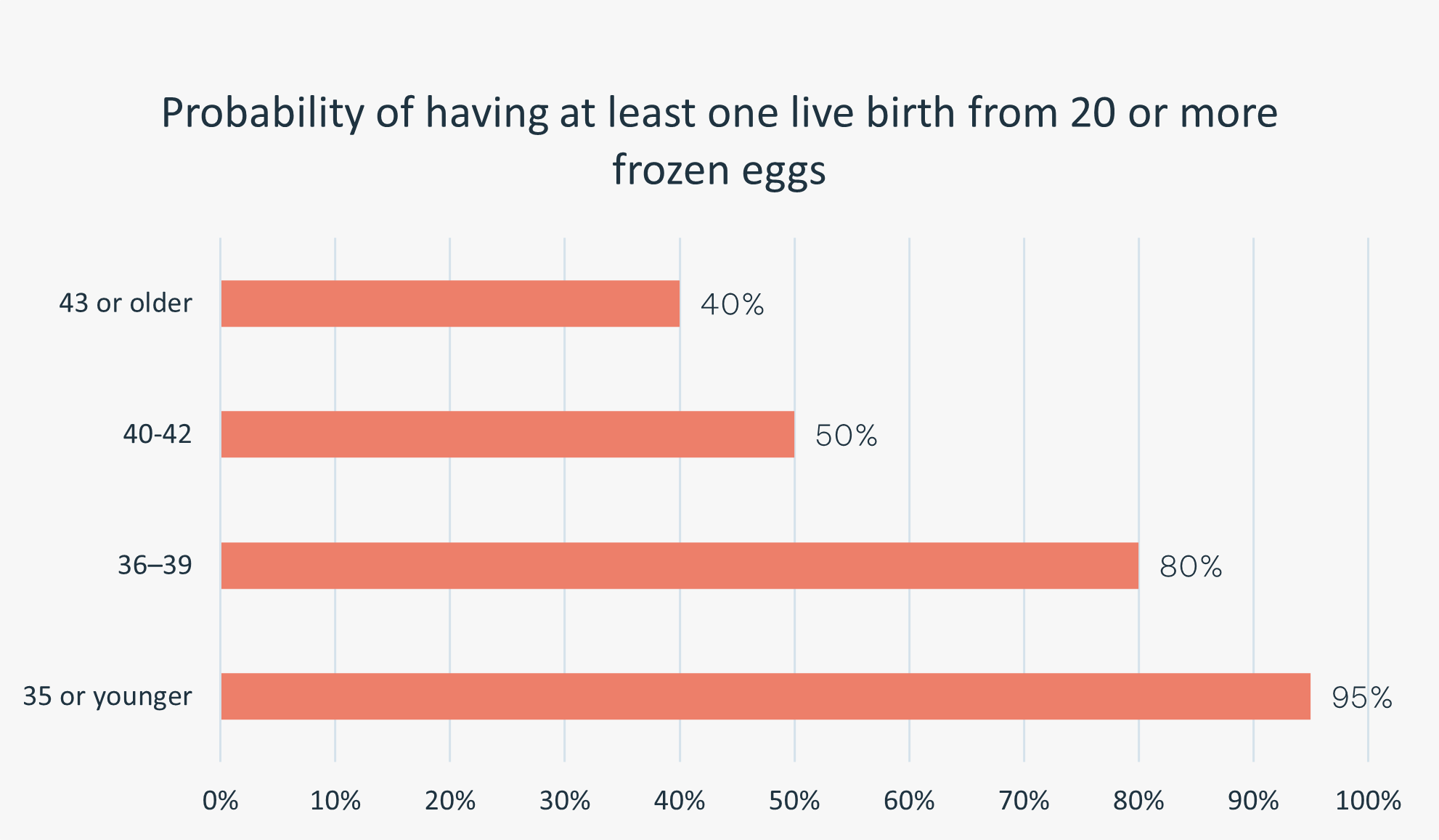What is an Anti-Müllerian hormone (AMH)?
AMH is a protein hormone that’s produced by special cells inside your ovarian follicles. The amount of AMH levels in your blood helps us to assess your ovarian reserve and helps predict the number of eggs that may be collected during your cycle.
If you have a high level of AMH we would expect that you may produce more eggs with a smaller dose of medication, whereas a lower AMH level may be a sign of lower response to ovarian stimulation and hence fewer eggs may be frozen
Why is AMH important?
AMH testing is usually used as the most reliable estimator of your ovarian reserve or the number of eggs that you may produce which could be used for freezing or for an IVF cycle.
Your AMH levels can help your doctor to work out
- If you are a good candidate for egg freezing
- If you still have eggs to use in IVF treatment
- Whether you are close to entering menopause
To work out your AMH levels, which stay constant throughout your menstrual cycle, a simple blood test can be taken at any point during the month.
What do my AMH test results mean?
While AMH levels are a very reliable marker of how many eggs you may still have, it’s only part of the picture when it comes to your chances of pregnancy or suitability for egg freezing.
The AMH blood test measures how many eggs may be collected during an egg-freezing treatment cycle. It doesn’t measure the health of the eggs you have, which is more important when it comes to getting pregnant. AMH blood test, therefore, does not have any predictive value when trying to get pregnant naturally. There isn’t a test for egg quality, but quality does decline with age in a predictable way.
Your doctor will look at the results of an AMH test but will also have a scan report and all of your medical history and information, in order to build a complete picture of your fertility health.
Your AMH levels don’t indicate whether or not you can get pregnant naturally since it does not offer any information about the quality of your eggs.
AMH levels don’t tell us if you have fibroids, uterine scarring, or another condition that might make it harder to conceive. And an AMH test can’t tell us how quickly your egg count is decreasing since it’s just a snapshot of your levels at one specific point in time.
But that doesn’t mean it’s not useful.
A particularly low AMH for your age can point to the possibility of early menopause, while an abnormally high AMH level may indicate polycystic ovary syndrome (PCOS), a hormone imbalance that can make it harder to get pregnant.
And when it comes to freezing your eggs, AMH levels tell us one critical piece of information: how many eggs you’ll be likely to freeze in one cycle.
What are “normal” AMH levels by age?
Every person with ovaries is born with 1-2 million eggs —some are lost before puberty and after that about 1,000 disintegrate each month until menopause, when egg count and AMH levels drop down to zero.
Generally, the number of eggs starts to fall significantly around age 25, more rapidly around 30, and then even more steeply around 36. AMH levels fall as your egg count reduces.
Although we can talk generally about progress, every individual is totally unique and may have an egg count and AMH levels that fall at a different rate or on a different timeline.
What can “normal” AMH levels tell you?
Most women want to know if their AMH levels are higher or lower than average. But this can be difficult to determine, as usual, the majority of people testing their AMH levels are the ones that already have fertility issues and are being tested.
However, if your AMH test results come back at a level expected for your age, there’s a good chance that you’ll be able to retrieve an average number of eggs in preparation for procedures like IVF or egg freezing. It’s also likely that you’ll reach the onset of menopause at or around the average age, which currently sits at 51 in the UK.
AMH levels can’t tell you everything about your chances of getting pregnant, but they are the most reliable marker we have to give you an understanding of your remaining fertility.
What do your AMH levels mean for your egg-freezing cycle?
AMH testing is an invaluable tool for doctors if you’re considering freezing your eggs. AMH levels are typically closely linked to the number of eggs you’ll be able to retrieve in one cycle.
But egg quality is also important for egg freezing. Older women have a lower percentage of genetically healthy eggs, and so to ensure they have the quality of eggs needed for conception, they actually have to freeze more eggs than younger women.
According to a model published in Human Reproduction in 2017:

While these figures are only a general guide, they can help you figure out how many cycles of egg retrieval you may need, or what your chances of pregnancy are with one cycle.
For example, if you’re 39 with an AMH level under 10, you might need to plan for multiple cycles to get a 50% chance of pregnancy with your frozen eggs at a later date.
How do I check my AMH levels and work out what they mean to me?
Our fertility home test kit includes everything you need to check your fertility from home:
- A pin-prick blood test checking AMH levels
- A fertility questionnaire including medical and lifestyle history
- A telephone consultation with a fertility expert to interpret your results
Buy your kit or you can book a fertility health check with us, as a good starting point to understanding your current fertility status, which includes an ultrasound scan, an AMH blood test and an in-person consultation.

Clinical Director and a Founding Member of London Egg Bank with more than 20 years of experience in fertility and assisted reproduction.
Learn More about Fertility

Freeze and Share
Our innovative Freeze and Share programme gives you an opportunity to freeze your eggs for free and at the same time give another family the chance to have the baby they are longing for.
What is the best age to freeze my eggs?
You will be most fertile in your 20s, but in your 30s fertility gradually declines, with a steeper fall happening after age 35.
